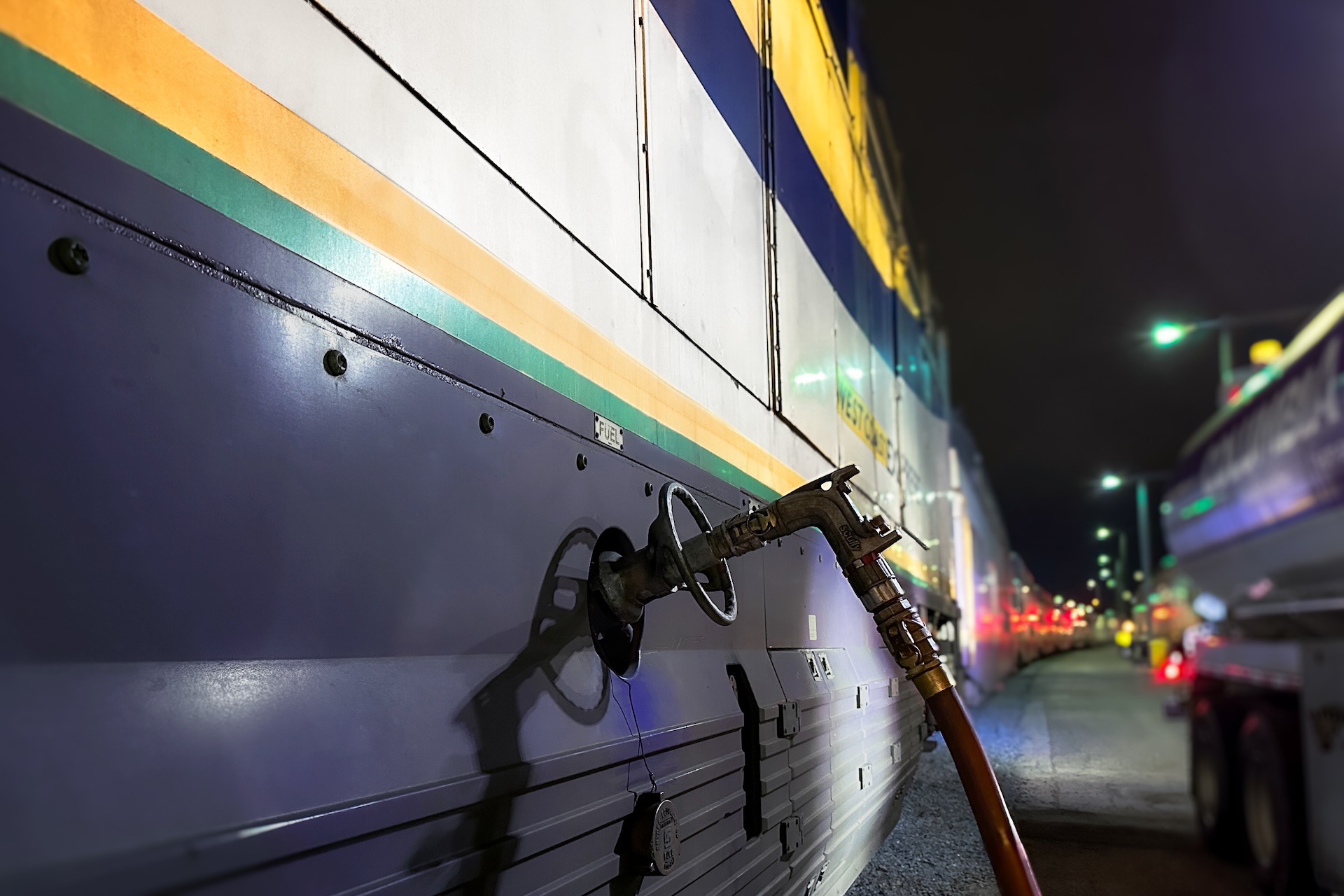West Coast Express fleet switches to renewable diesel
West Coast Express fleet switches to renewable diesel

We’re one step closer to achieving our net-zero emissions goals by switching the fuel for the West Coast Express fleet to renewable diesel!
Renewable diesel comes from organic waste, such as used cooking oil, waste animal fats, and vegetable oils. It also burns cleaner than fossil fuel diesel.
The conversion delivers a 97 per cent greenhouse gas (GHG) reduction across the fuel life cycle, compared to fossil fuel diesel. In total, this means a 3,200-tonne annual GHG reduction, or the equivalent of taking 940 cars off the road per year.
“Converting the West Coast Express to renewable diesel is an important step towards achieving a zero-emission future,” says TransLink CEO Kevin Quinn. “Customers can feel good knowing that each trip to and from the Fraser Valley is helping to reduce the region’s carbon footprint.”
Surrey Transit Centre was the first bus depot to transition to renewable diesel in December 2023, followed by Port Coquitlam Transit Centre and the Vancouver Transit Centre earlier this year.
Implementing renewable diesel will help TransLink achieve goals outlined in the Climate Action Strategy, including reducing GHGs 45 per cent by 2030 (from 2010 levels). We remain committed to moving to a zero-emission bus fleet by 2040.
With an expanding SkyTrain network, and a fleet of 280 electric trolley buses and battery-electric buses, we provide a robust network of zero-emissions transportation options for customers. The first all-electric transit centre, which will be located at Marpole in Vancouver, is under construction and is on track to be completed by 2027. We expect to deploy a total of 460 battery-electric buses by 2030.





